Allama Muhammad Iqbal
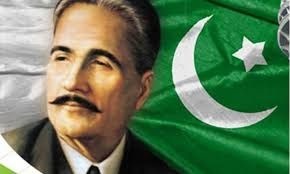
Sir Muhammad Iqbal (November 9, 1877 – April 21, 1938), widely known as Allama Iqbal , was a poet, philosopher, and politician, as well as an academic, barrister and scholar in British India who is widely regarded as having inspired the Pakistan Movement. He is called the "Spiritual father of Pakistan". He is considered one of the most important figures in Urdu literature, with literary work in both the Urdu and Persian languages.
Iqbal is admired as a prominent poet by Pakistanis, Indians, Bangladeshis, Sri Lankans and other international scholars of literature. Though Iqbal is best known as an eminent poet, he is also a highly acclaimed "Muslim philosophical thinker of modern times". His first poetry book, Asrar-e-Khudi, appeared in the Persian language in 1915, and other books of poetry include Rumuz-i-Bekhudi, Payam-i-Mashriq and Zabur-i-Ajam. Amongst these, his best known Urdu works are Bang-i-Dara, Bal-i-Jibril, Zarb-i Kalim and a part of Armughan-e-Hijaz. Along with his Urdu and Persian poetry, his Urdu and English lectures and letters have been very influential in cultural, social, religious and political disputes.
In 1922, he was knighted by King George V, granting him the title "Sir". While studying law and philosophy in England, Iqbal became a member of the London branch of the All-India Muslim League. Later, during the League's December 1930 session, he delivered his most famous presidential speech known as the Allahabad Address in which he pushed for the creation of a Muslim state in Northwest India.
In much of South Asia and the Urdu speaking world, Iqbal is regarded as the Shair-e-Mashriq "Poet of the East". He is also called Mufakkir-e-Pakistan "The Thinker of Pakistan", Musawar-e-Pakistan "Artist of Pakistan" and Hakeem-ul-Ummat "The Sage of the Ummah"). The Pakistan government officially named him a "national poet". His birthday Yōm-e Welādat-e Muḥammad Iqbāl or Iqbal Day, is a public holiday in Pakistan. In India he is also remembered as the author of the popular song Saare Jahaan Se Achcha.
Personal Life
Background
Iqbal was born on 9 November 1877 in Sialkot within the Punjab Province of British India (now in Pakistan). His grandparents were Kashmiri Pandits, the Brahmins of the Sapru clan from Kashmir who converted to Islam. In the 19th century, when the Sikh Empire was conquering Kashmir, his grandfather's family migrated to Punjab. Iqbal often mentioned and commemorated his Kashmiri Pandit Brahmin lineage in his writings.
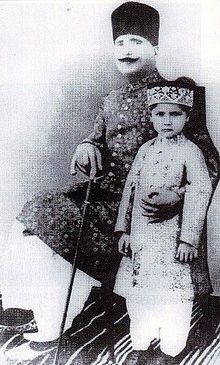
Allama Iqbal with his son Javed Iqbal in 1930 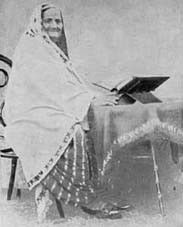
Iqbal's mother, who died on 9 November 1914. Iqbal expressed his feeling of pathos in a poetic form after her death
Iqbal's father, Sheikh Noor Muhammad (died 1930), was a tailor, not formally educated but a religious man. Iqbal's mother Imam Bibi was a polite and humble woman who helped the poor and solved the problems of neighbours. She died on 9 November 1914 in Sialkot. Iqbal loved his mother, and on her death he expressed his feelings of pathos in a poetic form elegy.
Who would wait for me anxiously in my native place?
Who would display restlessness if my letter fails to arrive?
I will visit thy grave with this complaint:
Who will now think of me in midnight prayers?
All thy life thy love served me with devotion—
When I became fit to serve thee, thou hast departed.
Iqbal was four years old when he was admitted to the masjid to learn the Qur'an. He learned the Arabic language from his teacher Syed Mir Hassan, the head of the madrassa and professor of Arabic language at Scotch Mission College in Sialkot, where he matriculated in 1893. He received Intermediate with the Faculty of Arts diploma from Murray College Sialkot in 1895. The same year he enrolled at the Government College Lahore where he obtained his Bachelor of Arts in philosophy, English literature and Arabic in 1897, and won the Khan Bahadurddin F.S. Jalaluddin medal as he took higher numbers in Arabic class. In 1899, he received his Masters of Arts degree from the same college and had the first place in Punjab University, Lahore.
Iqbal married three times, in 1895 while studying Bachelor of Arts he had his first marriage with Karim Bibi, the daughter of physician Khan Bahadur Ata Muhammad Khan (the maternal grandfather of director and music composer Khwaja Khurshid Anwar), through an arranged marriage. They had daughter Miraj Begum and son Aftab Iqbal. Later Iqbal's second marriage was with Sardar Begum mother of Javid Iqbal, and his third marriage was with Mukhtar Begum in December 1914.
Higher education in Europe
Iqbal was influenced by the teachings of Sir Thomas Arnold, his philosophy teacher at Government College Lahore. Arnold's teachings determined Iqbal to pursue higher education in the West, and in 1905, he travelled to England for that purpose. Iqbal qualified for a scholarship from Trinity College, University of Cambridge and obtained Bachelor of Arts in 1906, and in the same year he was called to the bar as a barrister from Lincoln's Inn. In 1907, Iqbal moved to Germany to pursue his doctoral studies, and earned a Doctor of Philosophy degree from the Ludwig Maximilian University of Munich in 1908. Working under the guidance of Friedrich Hommel, Iqbal's doctoral thesis entitled The Development of Metaphysics in Persia was published.
During Iqbal's stay in Heidelberg in 1907 his German teacher Emma Wegenast taught him about Goethe's Faust, Heine and Nietzsche. During his study in Europe, Iqbal began to write poetry in Persian. He prioritised it because he believed he had found an easy way to express his thoughts. He would write continuously in Persian throughout his life.
Academic
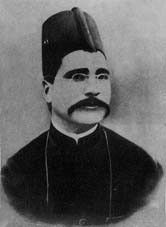
Photograph taken during Allama Iqbal's youth in 1899
Iqbal, after completing his Master of Arts degree in 1899, began his career as a reader of Arabic at Oriental College and shortly afterwards was selected as a junior professor of philosophy at Government College Lahore, where he had also been a student in the past. He worked there until he left for England in 1905. In 1908, he returned from England and joined the same college again as a professor of philosophy and English literature. In the same period Iqbal began practising law at Chief Court Lahore, but he soon quit law practice and devoted himself in literary works, becoming an active member of Anjuman-e-Himayat-e-Islam. In 1919, he became the general secretary of the same organisation. Iqbal's thoughts in his work primarily focus on the spiritual direction and development of human society, centred around experiences from his travels and stays in Western Europe and the Middle East. He was profoundly influenced by Western philosophers such as Friedrich Nietzsche, Henri Bergson and Goethe.
The poetry and philosophy of Mawlana Rumi bore the deepest influence on Iqbal's mind. Deeply grounded in religion since childhood, Iqbal began concentrating intensely on the study of Islam, the culture and history of Islamic civilisation and its political future, while embracing Rumi as "his guide". Iqbal would feature Rumi in the role of guide in many of his poems. Iqbal's works focus on reminding his readers of the past glories of Islamic civilisation, and delivering the message of a pure, spiritual focus on Islam as a source for sociopolitical liberation and greatness. Iqbal denounced political divisions within and amongst Muslim nations, and frequently alluded to and spoke in terms of the global Muslim community or the Ummah.
Iqbal's poetry has been translated into many European languages, at the time when his work was famous during the early part of the 20th century. Iqbal's Asrar-i-Khudi and Javed Nama were translated into English by R. A. Nicholson and A. J. Arberry respectively.
Final years and death
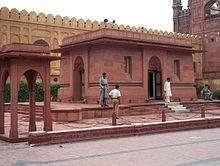
The tomb of Muhammad Iqbal at the entrance of the Badshahi Mosque in Lahore.
In 1933, after returning from a trip to Spain and Afghanistan, Iqbal suffered from a mysterious throat illness. He spent his final years helping Chaudhry Niaz Ali Khan to establish the Dar ul Islam Trust Institute at Jamalpur estate near Pathankot, where there were plans to subsidise studies in classical Islam and contemporary social science. He also advocated for an independent Muslim state.
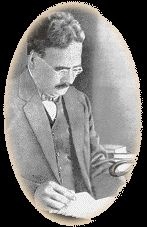
Iqbal as a Barrister-at-Law
Iqbal ceased practising law in 1934 and was granted a pension by the Nawab of Bhopal. In his final years, he frequently visited the Dargah of famous Sufi Hazrat Ali Hujwiri in Lahore for spiritual guidance. After suffering for months from his illness, Iqbal died in Lahore on 21 April 1938. His tomb is located in Hazuri Bagh, the enclosed garden between the entrance of the Badshahi Mosque and the Lahore Fort, and official guards are provided by the Government of Pakistan.
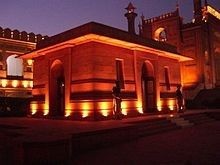
A night view of the tomb
Iqbal is commemorated widely in Pakistan, where he is regarded as the ideological founder of the state. His Tarana-e-Hind is a song that is widely used in India as a patriotic song speaking of communal harmony. His birthday is annually commemorated in Pakistan as Iqbal Day, a national holiday. Iqbal is the namesake of many public institutions, including the Allama Iqbal Campus Punjab University in Lahore, the Allama Iqbal Medical College in Lahore, Iqbal Stadium in Faisalabad, Allama Iqbal Open University in Pakistan, the Allama Iqbal International Airport in Lahore, the Allama Iqbal hall in Nishtar Medical College in Multan, Gulshan-e-Iqbal Town in Karachi, Allama Iqbal Town in Lahore, and Allama Iqbal Hall at Aligarh Muslim University in India.
The government and public organisations have sponsored the establishment of educational institutions, colleges and schools dedicated to Iqbal, and have established the Iqbal Academy Pakistan to research, teach and preserve his works, literature and philosophy. Allama Iqbal Stamps Society was established for the promotion of Iqbaliyat in philately and in other hobbies. His son Javid Iqbal has served as a justice on the Supreme Court of Pakistan. Javaid Manzil was Iqbal's last residence.
Iqbal known in subcontinent
As Poet of the East
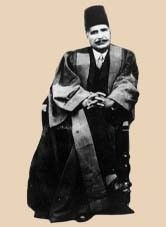
Allama Iqbal (In the Doctorate of Literature) after the conferment of this Degree by the University of the Punjab in 1933
Iqbal has been recognised and quoted as "Poet of the East" by academics and institutions and media.
The Vice-Chancellor, Quaid-e-Azam University, Dr. Masoom Yasinzai described in a seminar as chief guest addressing to distinguished gathering of educationists and intellectuals, that Iqbal is not a poet of the East only, actually he is a universal poet. Moreover, Iqbal is not restricted to any specific segment of the world community but he is for the entire humanity.
Yet it should also be born in mind that whilst dedicating his Eastern Divan to Goethe, the cultural icon par excellence, Iqbal's Payam-i-Mashriq constituted both a reply as well as a corrective to the Western Divan of Goethe. For by stylising himself as the representative of the East, Iqbal's endeavour was to talk on equal terms to Goethe as the representative of West."
Iqbal's revolutionary works through his poetry awakened the Muslims of the subcontinent. Iqbal was confident that the Muslims had long been suppressed by the colonial enlargement and growth of the West. In this concept Iqbal is recognised as the "Poet of the East".
So to conclude, let me cite Annemarie Schimmel in Gabriel's Wing who lauds Iqbal's 'unique way of weaving a grand tapestry of thought from eastern and western yarns' (p. xv), a creative activity which, to cite my own volume Revisioning Iqbal, endows Muhammad Iqbal with the stature of a "universalist poet" and thinker whose principal aim was to explore mitigating alternative discourses with a view to constructing a bridge between the 'East' and the 'West'.
Urdu world is very familiar Iqbal as the "Poet of the East". Iqbal is also called Muffakir-e-Pakistan "The Thinker of Pakistan" and Hakeem-ul-Ummat "The Sage of the Ummah". The Pakistan government officially named him a "national poet".
International influence
Iqbal in Iran
In Iran, he is famous as Iqbāl-e Lāhorī. (Iqbal of Lahore) Iqbal's "Asrare-i-Khudi" and famous "Bal-i-Jibreel" enjoy mass popularity in Iran and are taken as a way of life, while many scholars in Iran have recognised the importance of Iqbal's poetry in inspiring and sustaining the Iranian Revolution of 1979. During the early phases of the revolutionary movement, it was a common thing to see people gathering in a park or corner to listen to someone reciting Iqbal's blood-warming Persian poetry, that is why people of all ages in Iran today are familiar with at least some of his poetry, notably "Az-zabur-e-Ajam".
Key Iranian thinkers and leaders who were influenced by Iqbal's poetry during the rise of the Iranian revolution include Ayatollah Ali Khamenei, Ali Shariati, and Abdolkarim Soroush; although much of the revolutionary guard was intimately familiar with numerous verses of Iqbal's body of poetry. In fact, at the inauguration of the First Iqbal Summit in Tehran (1986), The Supreme Leader of the Iranian Revolution, Ayatollah Khamenei stated that in its 'conviction that the Quran and Islam are to be made the basis of all revolutions and movements', Iran was 'exactly following the path that was shown to us by Iqbal'. Ali Shariati, who has been described as a core ideologue for the Iranian Revolution, described Iqbal as a figure who brought a message of "rejuvination", "awakening" and "power" to the Muslim World.
Iqbal and the West
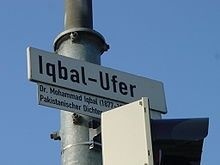
Name plate of a street Iqbal-Ufer, Heidelberg, Germany, honoured in the name of Iqbal.
Iqbal's views on the Western world were applauded by men including United States Supreme Court Associate Justice William O. Douglas, who said that Iqbal's beliefs had "universal appeal”. In his Soviet biography N. P. Anikoy wrote:
[Iqbal is] great for his passionate condemnation of weak will and passiveness, his angry protest against inequality, discrimination and oppression in all forms i.e., economic, social, political, national, racial, religious, etc., his preaching of optimism, an active attitude towards life and man's high purpose in the world, in a word, he is great for his assertion of the noble ideals and principles of humanism, democracy, peace and friendship among peoples.
Others, including Wilfred Cantwell Smith, stated that with Iqbal's anti-capitalist holdings he was 'anti-intellect', because "capitalism fosters intellect". Professor Freeland Abbot objected to Iqbal's views saying that Iqbal's view of the West was based on the role of imperialism and Iqbal was not immersed enough in Western culture to learn about the various benefits of the modern democracies, economic practices and science. Critics of Abbot's viewpoint note that Iqbal was raised and educated in the European way of life, and spent enough time there to grasp the general concepts of Western civilisation.
Bibliography
Main article: Muhammad Iqbal bibliography
Prose book
- · Ilm ul Iqtisad (1903)
Poetic books in Persian
- · Asrar-i-Khudi (1915)
- · Rumuz-i-Bekhudi (1917)
- · Payam-i-Mashriq (1923)
- · Zabur-i-Ajam (1927)
- · Javid Nama (1932)
- · Pas Cheh Bayed Kard ai Aqwam-e-Sharq (1936)
- · Armughan-e-Hijaz (1938) (in Persian and Urdu)
Poetic books in Urdu
- · Bang-i-Dara (1924)
- · Bal-i-Jibril (1935)
- · Zarb-i Kalim (1936)
Books in English
- · The Development of Metaphysics in Persia (1908)
- · The Reconstruction of Religious Thought in Islam (1930)



